+33 (0) 3 20 16 91 40
Water sampling and in situ measurements

Sampling and analysis organisations from all over France gather in one place. They measure on site the content of physico-chemical compounds in water, take samples manually or by automatic sampler or measure the flow of the current.
⇒ AGLAE provides 7 programmes in this category of interlaboratory tests Water sampling and in situ measurements.
These AGLAE intercomparison days enable participants to improve the quality of their on-site measurements and sampling, but also the quality of the resulting analyses.
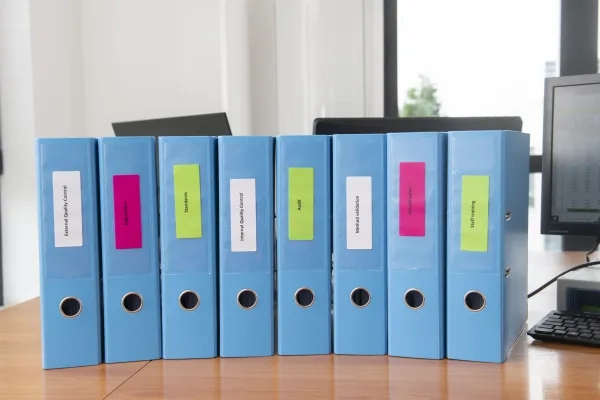
Why participate in the "Sampling and in situ measurements" proficiency tests?
They are carried out as part of self-monitoring or regulatory controls. They enable part of the requirements to be covered:
- accreditation scopes related to physico-chemical analyses in waters (see Accreditation No. 1-1664)
- approvals issued by Ministries of Health to carry out sampling and analysis for water quality control purposes
- approvals issued by Ministries for the Environment to carry out analyses in the field of water and aquatic environments
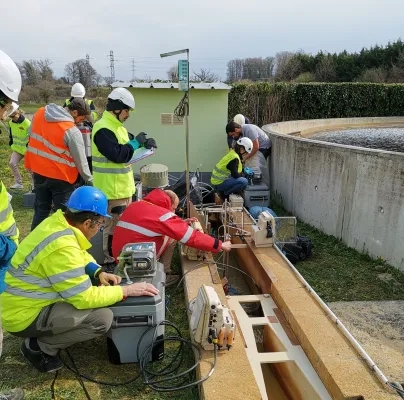
The 3 types of interlaboratory comparisons that AGLAE provides
- In situ measurements and sampling on different types of water: in situ measurements are provided in bathing water, river water and swimming pool water. Sampling is carried out in river water and bathing water.
- Sampling using automatic samplers in a wastewater treatment plant: automatic samplers are placed on the inlet and outlet channels of the wastewater treatment plant for 24 hours. At the same time, sampling operators carry out in situ measurements and take samples of wastewater.
- Flow measurement: flow is measured on a open channel.
These tests take place at various sites in France (Nord, Creuse, Rhône, Loire-Atlantique, etc.). It should be noted that the interlaboratory comparisons carried out in the Creuse are organised in partnership with the International Office for Water (OiEau).
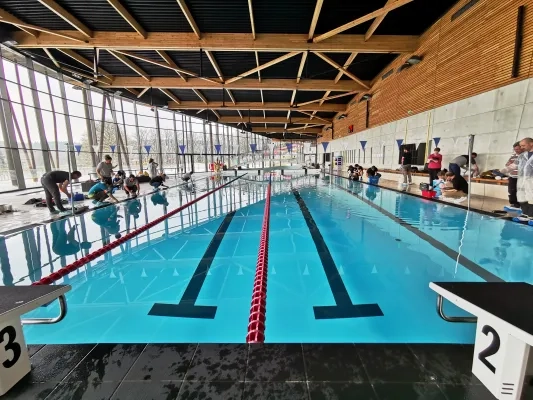
What measurements are carried out by sampling operators?
- On-site measurements will depend on the type of water. Bathing water and river water include measuring pH, conductivity, dissolved oxygen, turbidity and clarity using the Secchi disc. For swimming pool waters, sampling operators measure pH, temperature, free chlorine and total chlorine.
- Sampling for microbiological analyses (such as intestinal enterococci, E. coli) and chemical analyses (including nitrates, total phosphorus, calcium, micropollutants potentially present) are carried out on site. The samples taken are then all analysed by the same analysis service provider.
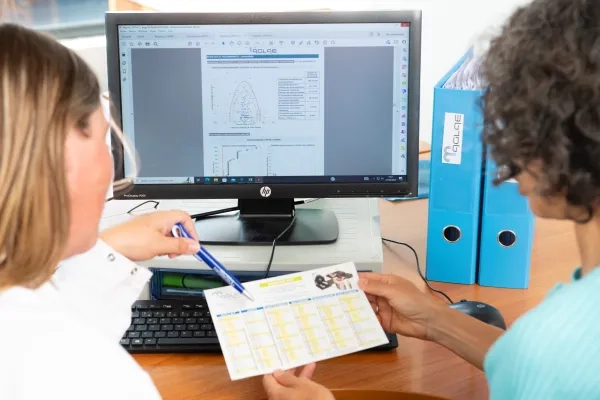
Why take part in the "in situ and sampling" interlaboratory comparisons
- Sampling operations, the first steps in the measurement chain, contribute to the quality of the resulting physico-chemical and bacteriological analyses.
- Focusing on the sampling part of the process highlights the improvements that need to be made to these operations. Improvements may concern the quality of sampling, but also human resources (staff training and experience) and material resources (equipment calibration, maintenance).
- AGLAE tests can be used to assess the quality of sampling or measurements (in situ, automatic sampler, flow rate), as well as to check participants' estimates of measurement uncertainties and assess the reproducibility of their measurements.
Note that ‘In situ measurements and sampling on different types of water’ tests are covered by our accreditation scope.
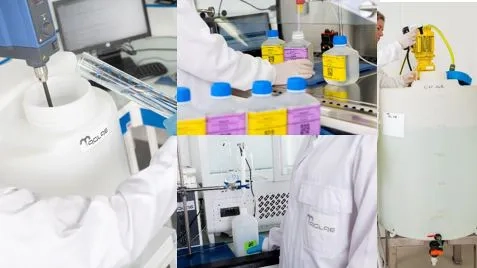
Other proficiency tests that may be of interest to you
AGLAE also offers to improve the quality of your physico-chemical and microbiological laboratory analyses. The following areas may be of interest to you:
See all AGLAE's tests
